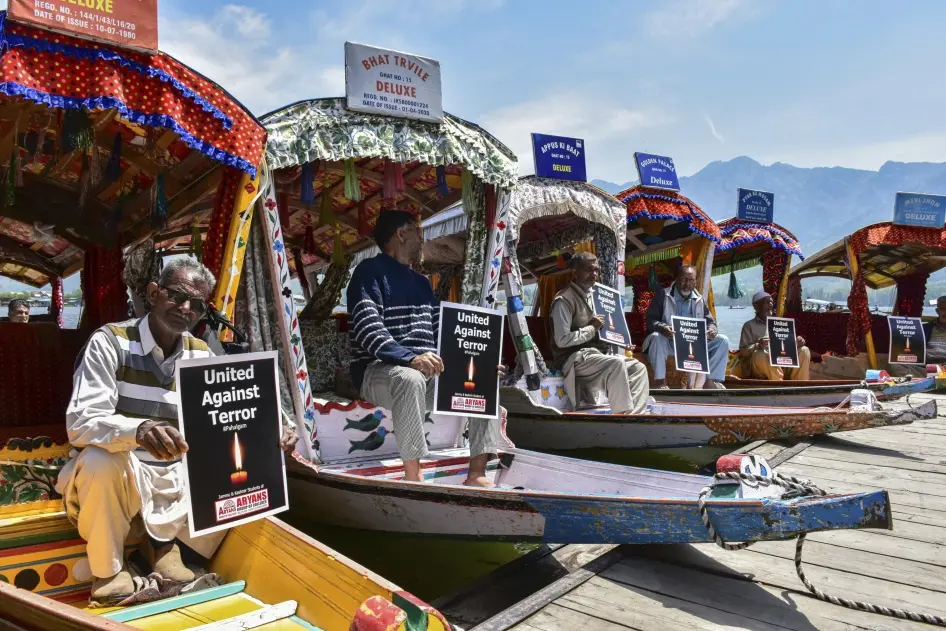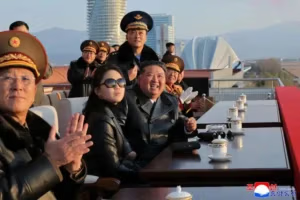Tensions are escalating between nuclear-armed rivals India and Pakistan following a deadly terror attack in Kashmir that threatens to derail trade and destabilize regional peace.
Kashmir Attack Sparks Diplomatic and Military Standoff
India and Pakistan are experiencing their most serious military standoff in years after an attack in Indian-controlled Kashmir on April 22 left 26 people dead, most of them Hindu tourists. The massacre has triggered a wave of diplomatic and military activity between the two neighbors, who have fought three wars — two of them over Kashmir.
India has blamed Pakistan for supporting the gunmen responsible, calling the incident a terrorist attack. Pakistan has denied any involvement. In retaliation, both nations have expelled each other’s diplomats, shut their borders, closed airspace, and, in a significant move, India suspended a key water-sharing treaty with Pakistan.
The Crisis Comes at a Critical Time for India’s Economy
The timing of the turmoil is especially sensitive for India. The escalating conflict has emerged in the middle of intense negotiations between New Delhi and Washington over a trade deal that Indian Prime Minister Narendra Modi hopes will shield India from President Donald Trump’s reciprocal tariffs.
Modi has been counting on the deal to showcase India as a stable and business-friendly alternative amid global trade tensions. With the crisis unfolding, India’s image as a secure investment destination may take a hit — potentially undermining Modi’s broader economic strategy.
International Community Urges Restraint
In the aftermath of the attack, world leaders were quick to condemn the violence. Now, attention has shifted to de-escalation. The U.N. Security Council is scheduled to hold closed-door consultations to address the issue, while the United States, China, Russia, Saudi Arabia, and Iran have all called on both sides to show restraint.
Iran has even offered to mediate between the two countries. Meanwhile, both New Delhi and Islamabad are scrambling diplomatically to shore up international support for their respective positions.
India has taken a proactive stance, briefing diplomats from dozens of countries to highlight what it calls a “cross-border link” to the attack.
“The diplomatic outreach this time has been quite extensive and the idea for India would be to showcase whatever evidence it has to its partners and to make a case that whatever actions might be coming from its side has the support of its partners and allies,” said Harsh Pant, foreign policy head at the Observer Research Foundation think tank in New Delhi.
Pakistan has also launched a diplomatic offensive, offering to cooperate with an international investigation into the attack. At the same time, it warned it would respond to any military strike by India with equal or greater force.
Tensions on the Line of Control and Crackdown in Kashmir
On the ground, military tensions continue to rise. The Indian army reports repeated gunfire exchanges along the Line of Control (LoC), accusing Pakistan of unprovoked firing for 10 consecutive nights. Pakistan has countered with its own accusations that India is violating the ceasefire agreement.
Inside Kashmir, India has launched a large-scale security operation aimed at tracking down the perpetrators of the April 22 attack. At least 2,000 people have been detained and interrogated, with several arrested under strict anti-terrorism laws that allow for detention without formal charges. Security forces have reportedly demolished nine homes belonging to families of suspected militants.
The sweeping crackdown has reignited fear and trauma among Kashmir residents, who have endured decades of insurgency and crackdowns.
“Kashmiris are always the first to bear the brunt of any political or military tensions between India and Pakistan,” said Praveen Donthi, senior analyst with the International Crisis Group.
“The collective punishment imposed on Kashmiris and the state violence unleashed against them further inflames the conflict,” Donthi added.
Military Shows of Strength Raise Alarms
Both nations are flexing their military capabilities. Pakistan test-fired a short-range missile on Monday — its second missile test in three days after launching a medium-range ballistic missile over the weekend. India’s navy also test-fired missiles last week in what analysts interpret as strategic signaling.
The standoff is raising fears of a repeat of the 2019 crisis, when a skirmish between Indian and Pakistani forces nearly spiraled into a full-blown war before U.S. diplomatic intervention calmed the situation.
Fragile Peace and Escalating Risks
While no military action has been taken by India so far, officials in Pakistan claim to have “credible intelligence” that a strike is imminent. The world watches closely as the threat of escalation remains high, and any miscalculation could trigger a dangerous conflict between two nuclear-armed states.
As diplomatic pressure mounts and tensions on the ground remain volatile, the coming days will be critical in determining whether this crisis moves toward de-escalation — or something far more dangerous.






